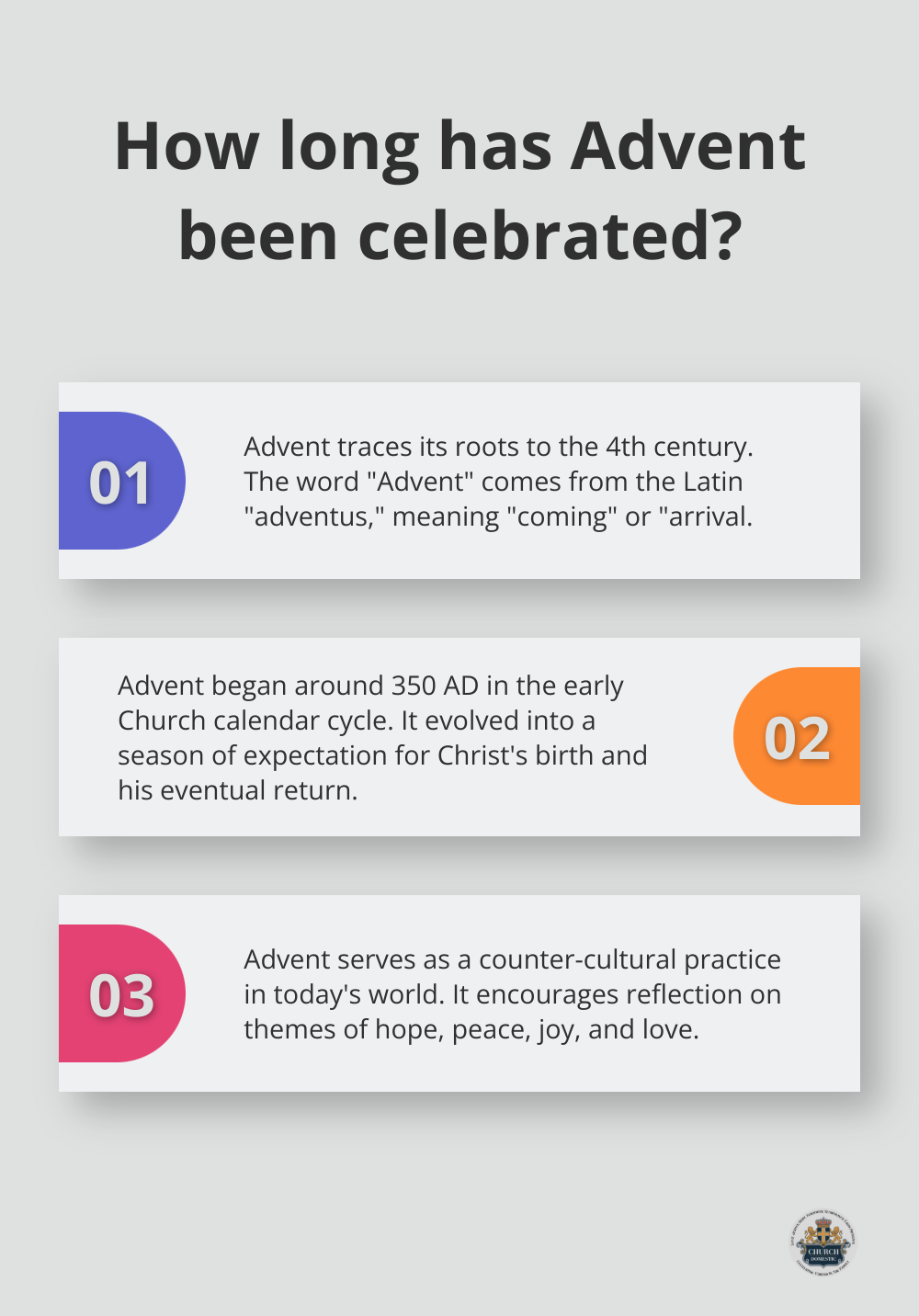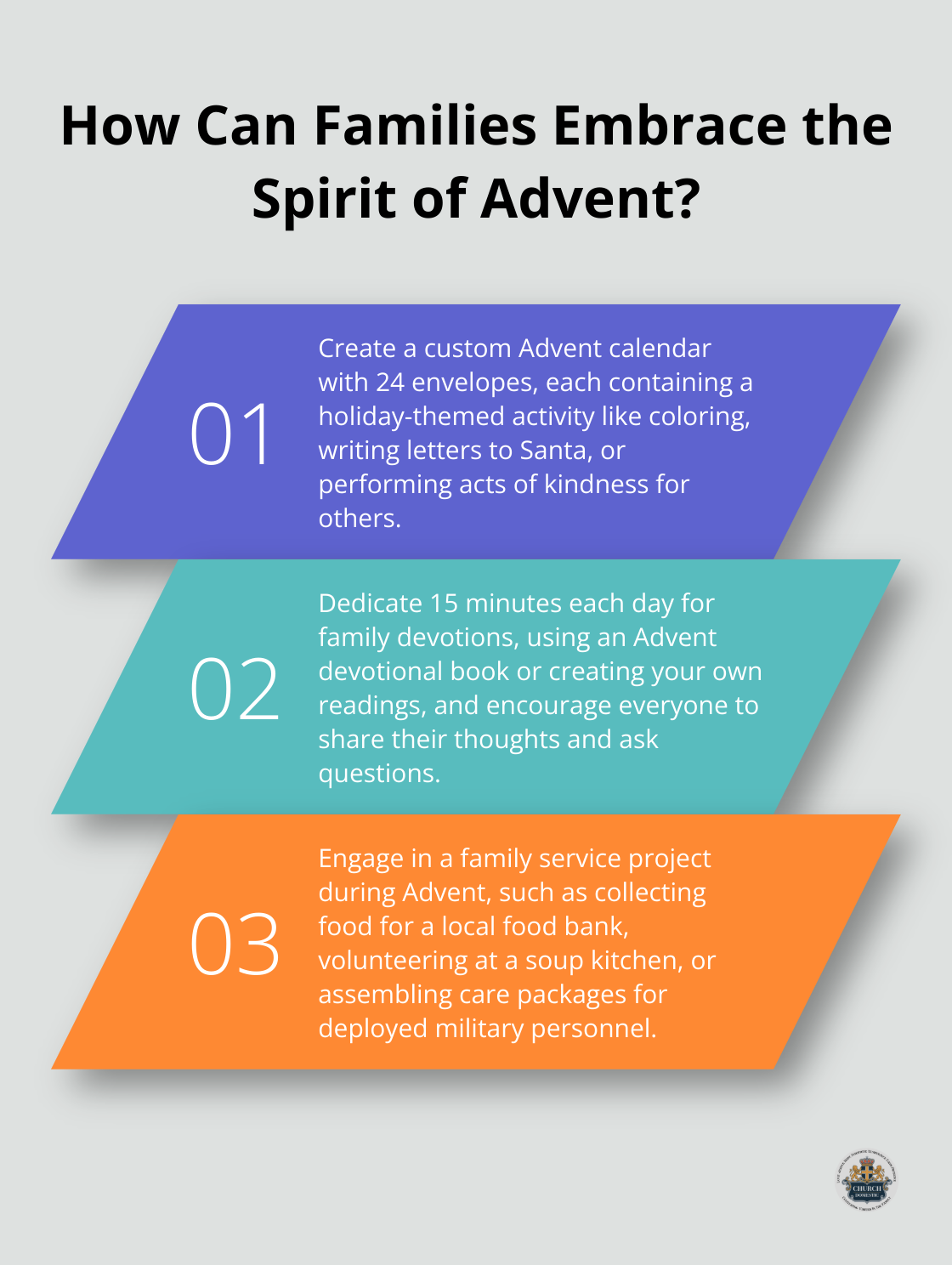At Church Domestic, we believe that faith traditions are the cornerstone of a strong family foundation. These shared spiritual experiences create lasting memories and foster a sense of unity among family members.
Faith traditions also play a vital role in passing down values and beliefs to future generations. In this post, we’ll explore practical ways to establish meaningful faith traditions that will resonate with your family for years to come.
Why Family Faith Traditions Matter
Family faith traditions form the foundation of spiritual growth and unity within the home. They establish a rhythm of shared experiences that shape beliefs, values, and identity. These traditions have the power to transform families in profound ways.
Building Unbreakable Bonds
When families pray, worship, or serve together, they create connections that withstand life’s challenges. The National Study of Youth and Religion examined the most important ideas to have emerged from the last 25 years of research on adolescent development in the family. These shared spiritual moments act as the glue that holds families together through good times and bad.
Shaping Family Identity
Faith traditions give families a unique identity. They answer the question, “Who are we?” For instance, a family that volunteers at a soup kitchen every Thanksgiving (not just doing a good deed) defines themselves as people who serve others. This sense of identity provides direction and purpose, especially for children and teenagers who are figuring out their place in the world.
Passing the Torch of Faith
The most powerful aspect of family faith traditions is their ability to transmit beliefs and values across generations. Consistent practice of faith traditions creates a legacy that can impact generations to come.
Starting Small and Growing
Implementing faith traditions doesn’t require complexity. Simple practices like saying grace before meals or reading a Bible story at bedtime can make a significant impact. As your family grows, your traditions can evolve too. The key lies in consistency and authenticity. Children who observe their parents genuinely engaged in faith practices are more likely to embrace those traditions themselves.
Tailoring Traditions to Your Family
Every family is unique (what works for one may not work for another). Try to find traditions that resonate with your family’s personality and values. A weekly family worship night or an annual mission trip can bring your family closer to each other and to God, but the specific tradition should fit your family’s dynamics.

As we move forward, let’s explore some practical ideas for faith-based family traditions that you can implement in your home. These suggestions will help you create meaningful spiritual experiences that your family will cherish for years to come.
Practical Faith Traditions for Every Family
At Church Domestic, we’ve witnessed families transform their spiritual lives with simple, consistent practices. Here are practical ideas to establish faith traditions that will resonate with your family.
Daily Devotions That Stick
Begin your day with a short family prayer or Bible reading. Even five minutes can make a difference. Use a devotional guide to help structure your time. Set a specific time for devotions, read the Bible together, pray as a family, and consider incorporating singing. Keep the focus on Jesus and His teachings.
Weekly Worship at Home
Dedicate one evening a week for family worship. This doesn’t require elaborate planning. Sing a few worship songs together, read a Bible passage, and pray for each other’s needs. Encourage each family member to participate. Kids can lead a song or share a short testimony. Teens might enjoy preparing a brief devotional to share.
Monthly Service as a Family
Serve others as a powerful way to live out your faith. Select a monthly service project that aligns with your family’s interests. Local food banks often need volunteers. Animal shelters welcome families to walk dogs or socialize cats. Habitat for Humanity allows children as young as 5 to help on construction sites (under adult supervision, of course). Make your chosen activity a regular part of your family’s routine.
Seasonal Faith Celebrations
Incorporate faith into your holiday traditions. During Advent, light candles and read prophecies about Jesus’ birth. For Easter, create a Lenten calendar with daily acts of kindness. On Thanksgiving, ask each family member to write what they’re grateful for on a paper leaf and create a gratitude tree. These seasonal practices help children understand the spiritual significance of holidays.
Adapting Traditions as Your Family Grows
The most important aspect of faith traditions is consistency, not perfection. Start with one or two traditions and build from there. As your family grows and changes, adapt your traditions. Try new practices that align with your family’s evolving interests and spiritual needs. The key is to create experiences that bring you closer to God and to each other.

Now that we’ve explored various faith traditions, let’s address some common challenges families face when trying to establish these practices and how to overcome them.
Navigating Roadblocks to Family Faith Traditions
Taming the Time Crunch
Modern families often struggle to find time for faith traditions. The solution lies in integrating these practices into existing routines. Transform your daily commute into a mobile prayer session. Use meal times for short devotionals. More time spent in personal prayer and engaging in family worship more often are linked with higher levels of relationship satisfaction.

Perfection isn’t the goal. Consistency matters more than duration. Even five minutes of focused family prayer time can significantly impact your spiritual life. Quality trumps quantity in this aspect of family life.
Bridging the Age Gap
Families with children of various ages often find it challenging to engage everyone in faith activities. To address this, rotate responsibility. Allow each family member to choose or lead the activity in turns. This approach ensures representation of everyone’s interests and teaches valuable leadership skills.
For younger children, use interactive methods like storytelling or role-playing Bible stories. Teenagers might appreciate more in-depth discussions or the use of Bible study apps. Research indicates that teenagers who regularly participate in family religious activities are more likely to maintain their faith into adulthood.
Overcoming Resistance
Some family members may show less enthusiasm for faith traditions. Instead of forcing participation, focus on making these times enjoyable and relevant. Share personal stories about how faith has impacted your life. Encourage open discussions where doubts and questions are welcome.
Religiousness relates to crucial positive manifestations in parenting. Maintain a positive attitude, even when faced with resistance.
Adapting to Family Changes
As families grow and evolve, faith traditions should adapt accordingly. Regularly reassess your practices to ensure they remain meaningful. Consider incorporating new elements that reflect your family’s current interests and needs. This flexibility helps maintain engagement and relevance across different life stages.
Embracing Technology
In our digital age, technology can enhance family faith traditions. Use Bible apps for daily readings, stream worship music for family sing-alongs, or participate in online church services together. (These digital tools can make faith practices more accessible and appealing, especially to tech-savvy family members.)
Final Thoughts
Faith traditions strengthen family bonds and shape identity. These shared spiritual experiences create lasting memories and foster unity that withstands life’s challenges. Families can weave faith into their daily lives through devotions, worship nights, service projects, and seasonal celebrations.

We recommend starting small and staying consistent to establish meaningful faith traditions. Choose one or two practices that resonate with your family and build from there. Allow your traditions to evolve as your family grows and changes to keep them relevant and engaging for everyone.
At Church Domestic, we believe faith traditions nurture spiritual growth and family unity. We encourage you to explore different ways to incorporate these practices into your family life. For more resources and ideas on creating lasting faith traditions for your family, visit our website.